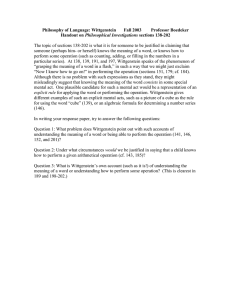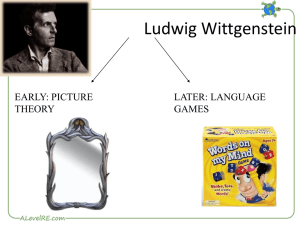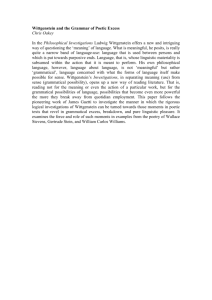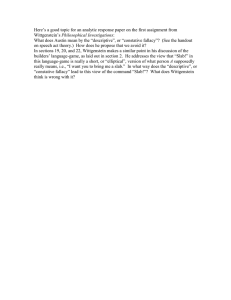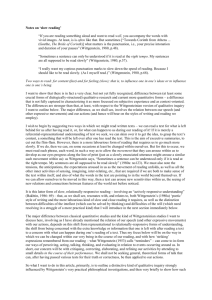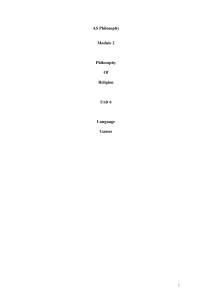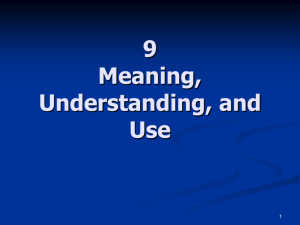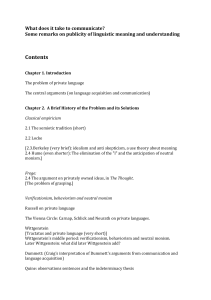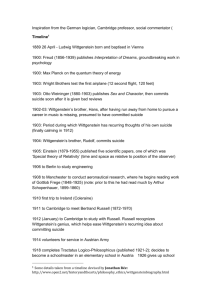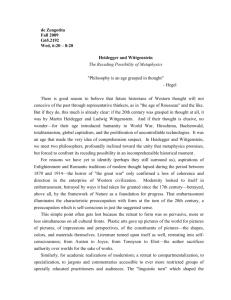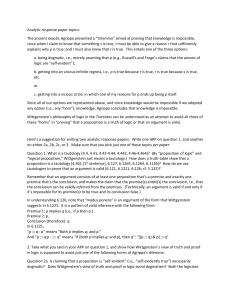Synthesizing without concepts
advertisement
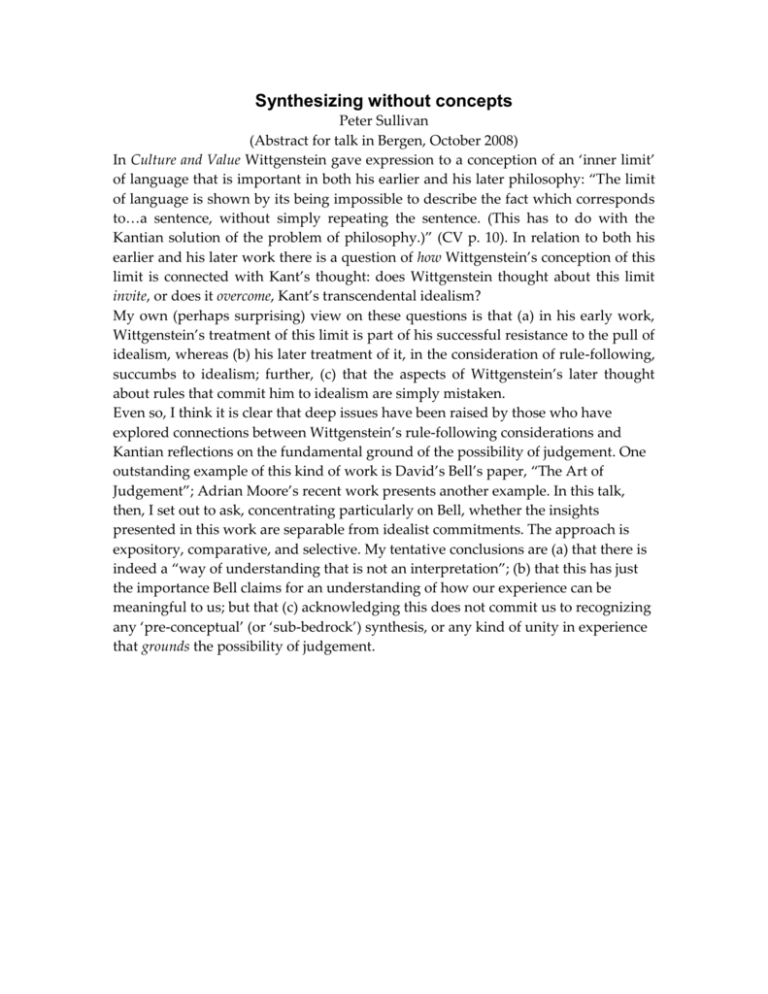
Synthesizing without concepts Peter Sullivan (Abstract for talk in Bergen, October 2008) In Culture and Value Wittgenstein gave expression to a conception of an ‘inner limit’ of language that is important in both his earlier and his later philosophy: “The limit of language is shown by its being impossible to describe the fact which corresponds to…a sentence, without simply repeating the sentence. (This has to do with the Kantian solution of the problem of philosophy.)” (CV p. 10). In relation to both his earlier and his later work there is a question of how Wittgenstein’s conception of this limit is connected with Kant’s thought: does Wittgenstein thought about this limit invite, or does it overcome, Kant’s transcendental idealism? My own (perhaps surprising) view on these questions is that (a) in his early work, Wittgenstein’s treatment of this limit is part of his successful resistance to the pull of idealism, whereas (b) his later treatment of it, in the consideration of rule‐following, succumbs to idealism; further, (c) that the aspects of Wittgenstein’s later thought about rules that commit him to idealism are simply mistaken. Even so, I think it is clear that deep issues have been raised by those who have explored connections between Wittgenstein’s rule‐following considerations and Kantian reflections on the fundamental ground of the possibility of judgement. One outstanding example of this kind of work is David’s Bell’s paper, “The Art of Judgement”; Adrian Moore’s recent work presents another example. In this talk, then, I set out to ask, concentrating particularly on Bell, whether the insights presented in this work are separable from idealist commitments. The approach is expository, comparative, and selective. My tentative conclusions are (a) that there is indeed a “way of understanding that is not an interpretation”; (b) that this has just the importance Bell claims for an understanding of how our experience can be meaningful to us; but that (c) acknowledging this does not commit us to recognizing any ‘pre‐conceptual’ (or ‘sub‐bedrock’) synthesis, or any kind of unity in experience that grounds the possibility of judgement.
